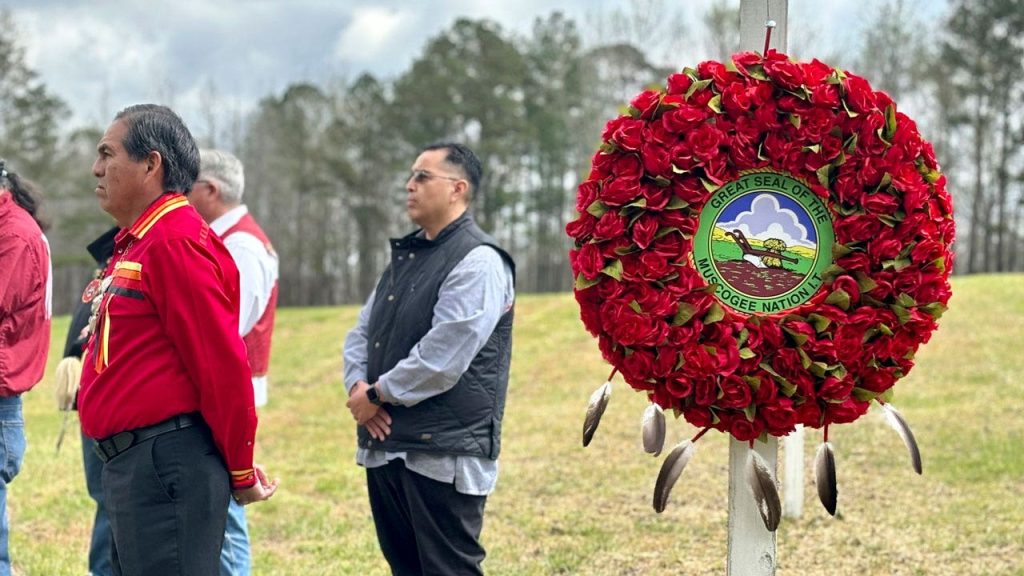Members of the Muscogee Creek Nation gathered in Alabama to commemorate the 210th anniversary of the Battle of Horseshoe Bend, where over 800 Muscogee warriors, women, and children lost their lives defending their homeland against U.S. forces. The battle, which occurred in 1814, was the single bloodiest day of conflict for Native Americans, paving the way for white settler expansion in the Southeast and the eventual forced removal of the Muscogee tribe from the region. Rather than celebrating, attendees came together to honor the lives and stories of those who fought and sacrificed in defense of their people.
One thousand warriors, along with women and children from six tribal towns, sought refuge at Horseshoe Bend, a site named for the sharp bend of the Tallapoosa River. They were attacked on March 27, 1814, by a force of 3,000 led by future U.S. President Andrew Jackson. Muscogee Creek Nation principal chief David Hill emphasized the warriors’ determination to protect their people and their freedom, demonstrating their resilience and bravery in the face of overwhelming adversity. A wreath, adorned with red flowers in honor of the Red Sticks warriors, was placed on the battle site by tribal leaders, who also recognized the six tribal towns that had sought refuge there.
Despite signing a treaty with the U.S., the Muscogee tribe was eventually forcibly removed from the Southeast to Oklahoma on the Trail of Tears. Descendants of those who made the journey back to the land their ancestors called home attended the remembrance ceremony, connecting with their heritage and honoring the sacrifices made by their people. The emotional impact of visiting the site, hearing the traditional language and songs, and experiencing the history firsthand was profound for many attendees, highlighting the importance of sharing and preserving their cultural heritage.
The Muscogee Nation has announced plans to establish a permanent memorial at the site to commemorate the lives lost and honor the strength and resilience of their people. Luminaries were placed on the field at sunset, and a song was sung in the Mvskoke language to remember those who perished at Horseshoe Bend. The names of the tribal towns were read aloud, accompanied by expressions of gratitude, reflecting the deep sense of appreciation and respect for those who fought to protect their way of life and preserve their culture amid adversity.
As attendees reflected on the history and legacy of the Battle of Horseshoe Bend, they acknowledged the strength and survival of their tribal towns, culture, and people. Muscogee Nation ambassador Jonodev Chaudhuri emphasized the enduring impact of the sacrifices and loss of life of those who fought at Horseshoe Bend, recognizing their influence on the continued fight to protect their culture, sovereignty, and way of life. Despite the challenges faced by their ancestors, the Muscogee people remain resilient and determined to preserve their heritage and uphold the values passed down by those who bravely defended their homeland. The remembrance ceremony served as a powerful reminder of the courage and resilience of the Muscogee Creek Nation in the face of adversity.















